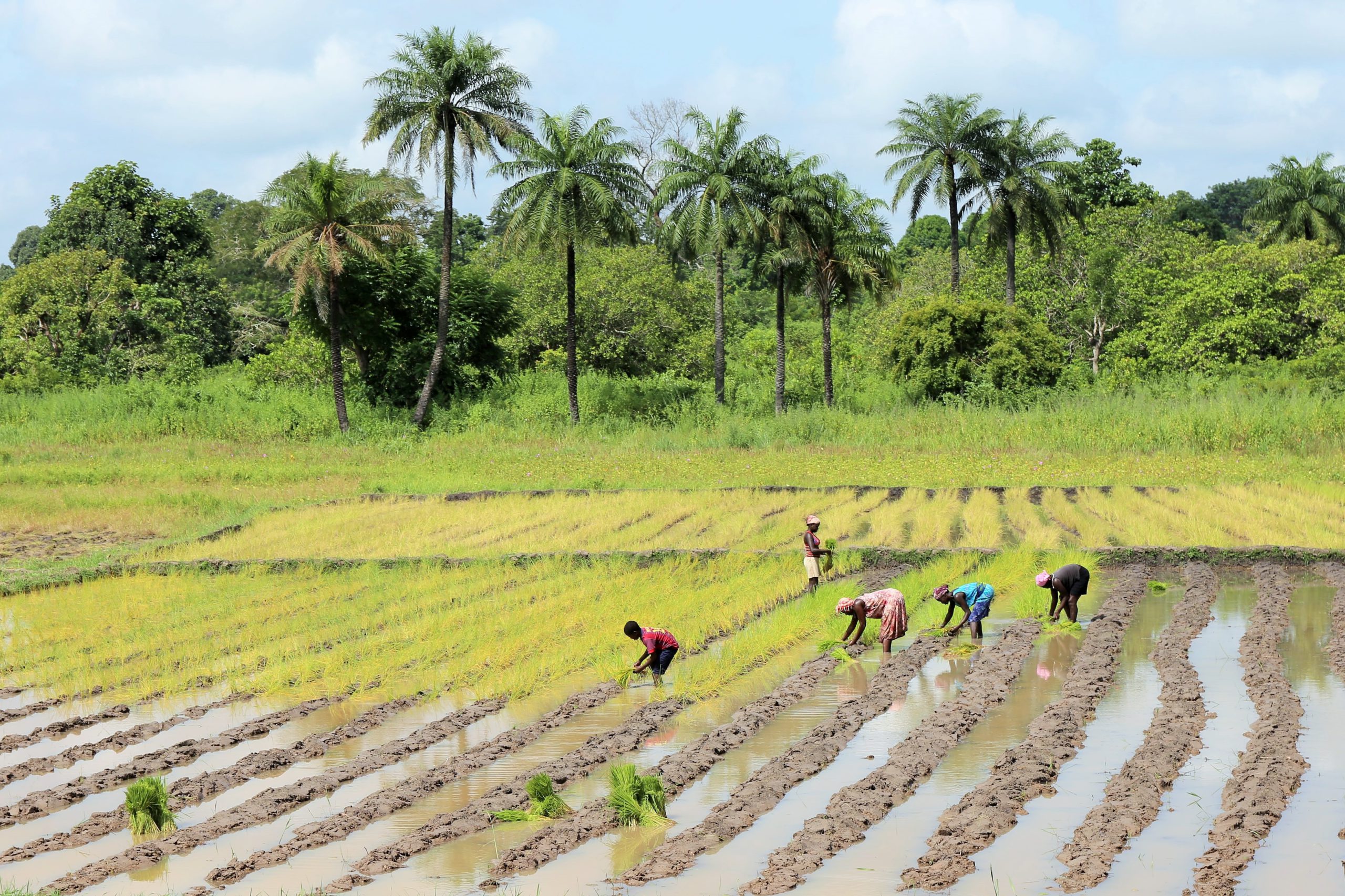International Women’s Day: What impact has AgriFood Africa Connect had on women?
Discover how African women were involved and empowered by the Innovate UK AgriFood Africa Connect programme.
The impact of ‘inequitable access’ on women in African AgriFood systems
Women form the backbone of the agricultural workforce in Africa. Alongside extensive childcare and household responsibilities, women play a central role in managing crops, livestock and other farm activities (IFDC). In keeping with this year’s International Women’s Day theme of ‘Inspire Inclusion’, empowerment and inclusion of women were core goals of the Innovate UK AgriFood Africa Connect programme.

Despite high levels of participation, women have lower levels of agricultural productivity in Sub-Saharan agriculture (UN Women). This is due to inequitable access to inputs like fertiliser, family labour, machinery and high value crops. Equalising access to such inputs can close this productivity gap, empowering women and improving AgriFood systems.
Of the 86 AgriFood Africa Connect Innovation Awards, 54 projects worked to improve female empowerment and participation in the AgriFood workforce. In this article, we take a deeper dive into three impactful projects that explicitly focused on enhancing the role of women in AgriFood.
-
Establishing women-led aquaculture businesses in South Africa
Though women form a key element of the workforce in each part of the AgriFood value chain, they are still largely underrepresented as business leaders.
A collaboration between the South African Network for Women in Fisheries and Aquaculture (SANFWA) and FUTUREFISH aimed to address this by identifying opportunities to establish women-led aquaculture businesses to empower women throughout aquaculture value chains.
The partners visited sites and stakeholders throughout Limpopo Province, South Africa, to assess the suitability of water bodies – including those currently being underutilised- to support safe, sustainable and nutritious aquaculture production. Using SANFWA’s expertise, they then developed scalable business models for women to lead in these areas.
The project’s impact has included:
- A greater understanding of South Africa’s aquaculture sector.
- A new partnership between the UK and South Africa.
- The development of training materials.
This project and the growth of SANFWA’s operation is projected to generate over 150 jobs in the first year and 300 in the second, playing a vital role in empowering women in South Africa’s aquaculture industry.
-
Promotion of composite flour for local recipes with locally available cereals, legumes and tubers for income generation and household nutrition
Reduced consumption of ‘forgotten foods’ – heritage grains that have traditionally been dietary staples – in Nigeria and West Africa has undermined nutrition due to the poorer nutrient content of their replacements like wheat and maize.
This project involving Jane Parker from the University of Reading and Hakeem Ayinde Ajeigbe from CGIAR addressed this by engaging local women with new, healthy flours created from sorghum to boost both nutrition and incomes.
This project aimed to boost nutrition by integrating sorghum into diets through creating new, high protein soy and cassava flours. The partners created two healthy products from the flours, and conducted extensive consumer testing across Nigeria, which demonstrated consumer acceptance of the products.
The impact on women was particularly strong. By promoting the composites in local women’s groups and industries, the project successfully encouraged their consumption, thereby boosting household nutrition. Furthermore, they engaged women to set up small scale processing of the flours to boost their income and support sustainable livelihoods.
-
Women’s cooperative marketing of value- added Mangrove Oyster products in Sierra Leone (TRUST)
There are many examples of women harvesting local products to then sell in community marketplaces. However, this economic activity is often not fully optimised to deliver maximum nutritional and economic benefit to women. One such example is the seasonal harvesting of oysters from mangroves in Bonthe District, Sierra Leone.
This collaboration between the University of Stirling’s Alexandra Pounds and the Sherbro Women’s Oyster Marketing Association (SWOMA), led by Aminata Foday, sought to support the livelihoods of local women by helping to optimise their business and marketing practices.
The project discovered the value of community-based institutions for the women involved and the wider community, helping SWOMA improve their outreach activities as oyster marketing experts to benefit more women. The project’s findings were then disseminated through a radio show and infographic. The success of this is expected to help local women in marketing their product, improving both livelihoods and nutrition.
Related programme

AgriFood Africa Connect
Innovate UK AgriFood Africa Connect brought innovative people and organisations across the UK and Africa together to develop solutions for the sustainable management of AgriFood systems in Africa.

